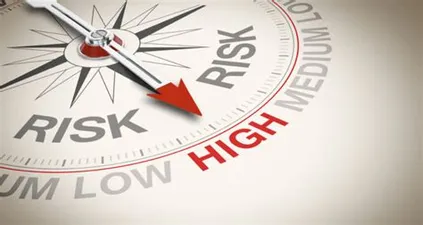
In what has come as an unwelcome development for India, the European Union (EU) has removed Pakistan from its list of “High-Risk Third Countries” that do not have robust anti-money laundering and countering terrorist financing regimes. The EU’s move is a big relief for Pakistan as it can help the crisis-hit country to conduct its business more freely. That is the reason why Pakistan Prime Minister Shebaz Sharif quickly welcomed the decision and went overboard, saying it would facilitate the country’s businesses, individuals and entities. The EU announced, “In line with last year’s FATF (Financial Action Task Force) decision, the EU has decided to remove Pakistan from its list of countries with high risk regarding money laundering and financing of terrorism.” But the EU’s move is a cause of concern for India, as this would mean that the additional regulatory watch and restrictions applicable to Pakistan until now would no longer be there. So, in view of this, India needs to be more cautious and alert in terms of security and increasing terror watch. Also, New Delhi needs to communicate its protest to the European Union for its decision to give relief to Pakistan which is yet to show credible action against terrorism emanating from the territory under its control. As an immediate reaction, India must apprise the EU of its opposition to this move through diplomatic channels and through its embassies and high commissions. Moreover, External Affairs Minister S. Jaishankar must also raise this issue as and when he meets his EU counterparts in near future. The fact that Pakistan’s action on terrorism leaves a lot to be desired needs to be brought to the notice of the EU countries. The matter must also be raised repeatedly at the level of the United Nations and also on global platforms. Entire international community should take note of this. India and its partners in the BRICS should also highlight their concern over such moves which are nothing short of “double standards” in the global fight against terrorism. Already, the BRICS nations of Brazil, India, China and South Africa have on many occasions rejected “double faced approach towards combating terrorism. Jaishankar never missed a chance in the past to question “the silence and double-standard” of the West over terrorism being harboured and backed by Pakistan. India’s line has always been that the era of classifying terrorists as “bad” and “good” on the basis of “political convenience “ must end immediately. A concept note circulated by India can be recalled here, in which New Delhi underlined that categorizing terror acts by intent as religious or ideologically motivated will dilute the shared global commitment to fighting terrorism.
Therefore, the step taken by EU is worrisome and it needs to be called out by New Delhi during every meeting between Indian and EU officials. Only last month, Jaishankar held meetings with his counterparts from the European Union and six countries on the margins of the G20 foreign ministers meeting. He used the occasion to highlight his concern over terrorism, stressing the need to strengthen the collective fight against the menace. As more diplomatic engagements with the European nations are in the offing, India should use the occasion to flag the latest development in a pinpointed manner. At the same time, experts’ views cannot be ignored at this point of time, as many of them say that the EU’s move could lead to rise in money laundering and terror financing activities in the region especially since general elections in Pakistan are approaching. There could also be a steep increase in the activities of radical elements, which India must be quite careful about. In fact, the countries which reflect higher threat to the financial system due to strategic flaws and shortcomings in their internal anti-money laundering and counter financing of terrorism (CFT) regimes are part of the list. And, Pakistan has been dropped from it by the EU, the move which has surprised India in the backdrop of the fact that increased terror activities have been reported on the soil of Pakistan, with the country battling to tide over the economic crisis, and its politicians for power. The EU and other countries including the US are fully aware of the MEA’s annual report, in which the Indian foreign ministry has categorically highlighted Pakistan’s failure to deliver justice to the families of the victims of the 2008 Mumbai terror attack.
The MEA’s annual report highlighted Pakistan’s persistent cross-border terrorism, infiltration, and smuggling of arms into India across the Line of Control and International Boundary. The report had been shared with the ambassadors and high commissioners of all the Western countries including the EU. Despite all glaring examples and facts exposing Pakistan’s poor record of fighting terror, the EU’s soft approach to it is astonishing.